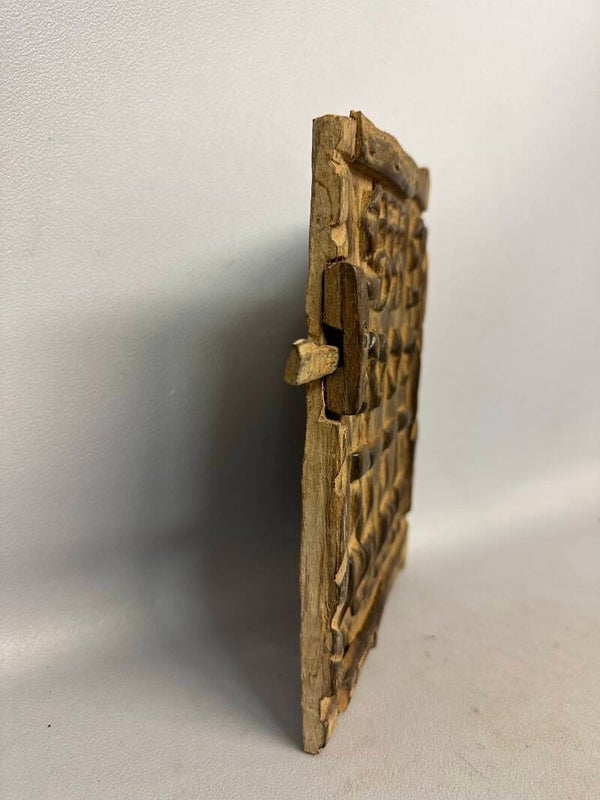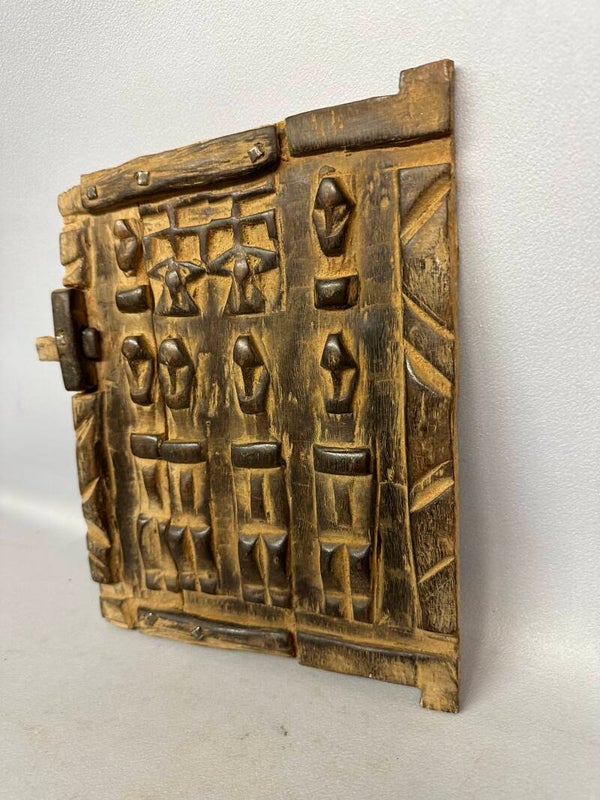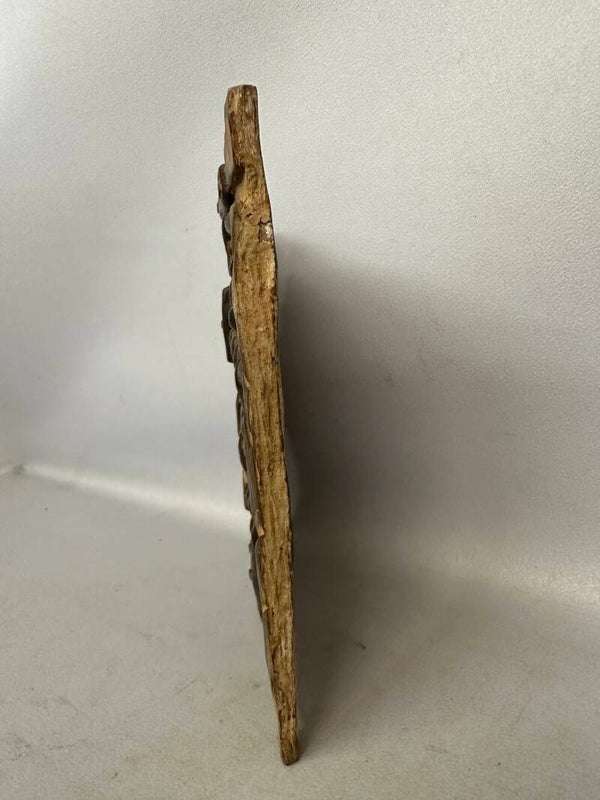240223 - Old African Dogon Door - Mali.
Mali: Large Rare and old Tribal used African Dogon Door.
Height: 25 cm x 19 cm.
This beautifully carved African Granary door storage measures 25 cm tall and is hand-carved of wood. It originates from the Dogon tribe of of Mali and Burkina Faso. These doors protected the window like opening into each family’s grain storage building so a small amount of food could be taken out. Primordial beings, ancestors, Kanaga masks, sun lizards and scenes of life symbolically served to protect the entrance by making it sacrosanct. The low reliefs are carved on several panels, held together by iron staples.
The Dogon are justifiably famous for their doors. Whether complex or plain, figurative or abstract, solid or weathered by the elements and use. Dogon doors are basically carved doorways and are a significant part of ancient West African life. The doors were initially designed to show social standing of the household. For the Agrarian societies of West Africa, granary doors are an especially important representation of wealth and prosperity of the farmer. Dogon people of Mali have created an art form in their granary doors. This amazing door would be fabulous in your home.
Dogon are famous for their small cast figures and objects, which despite their small size, express status, prestige and power. Known for their art as well as their remarkable villages along the heights of the Bandiagara escarpment in Mali, Dogon art remains today some of the best known and most collected African art.
The Dogon an ethnic group are mainly located in the administrative districts of Bandiagara and Douentza in Mali, West Africa. The precise origins of the Dogon people, like those of many other ancient cultures, are not yet determined. Their civilization emerged, in much the same way as ancient Egypt. Around 1490 AD the Dogon people migrated to the Bandiagara cliffs of central Mali. There are approximately 700 Dogon villages, with an average of 400 inhabitants. The tribe’s folk call themselves ‘Dogon’ or ‘Dogom’, but in the older literature they are most often called ‘Habe’, a Fulbe meaning ‘stranger’.















